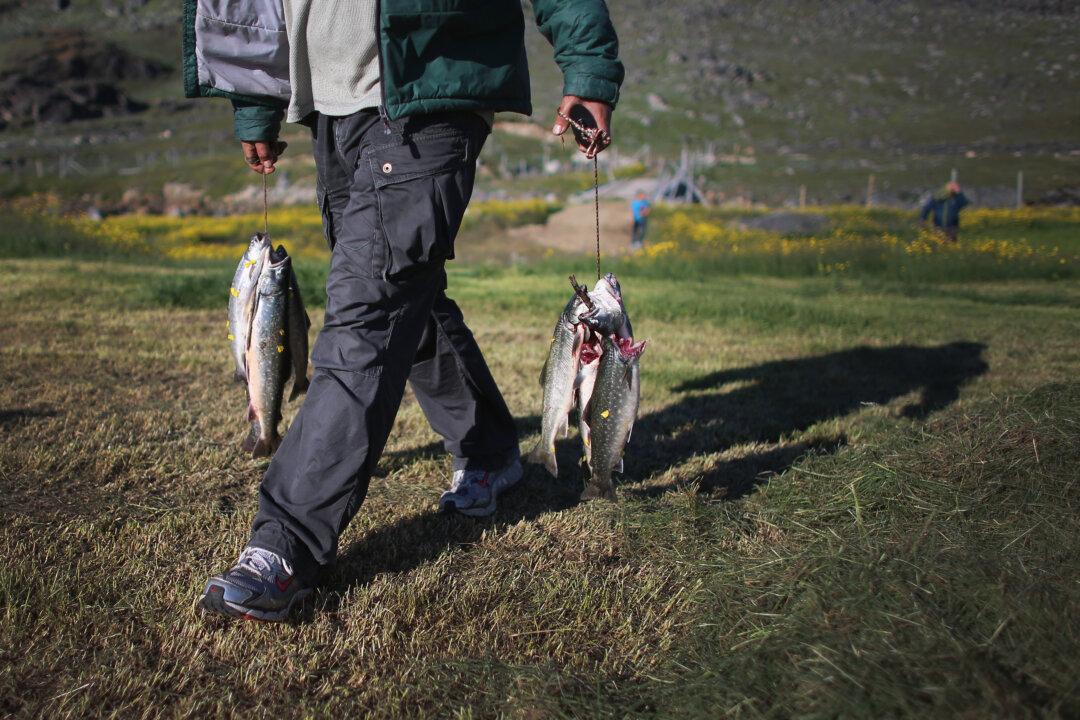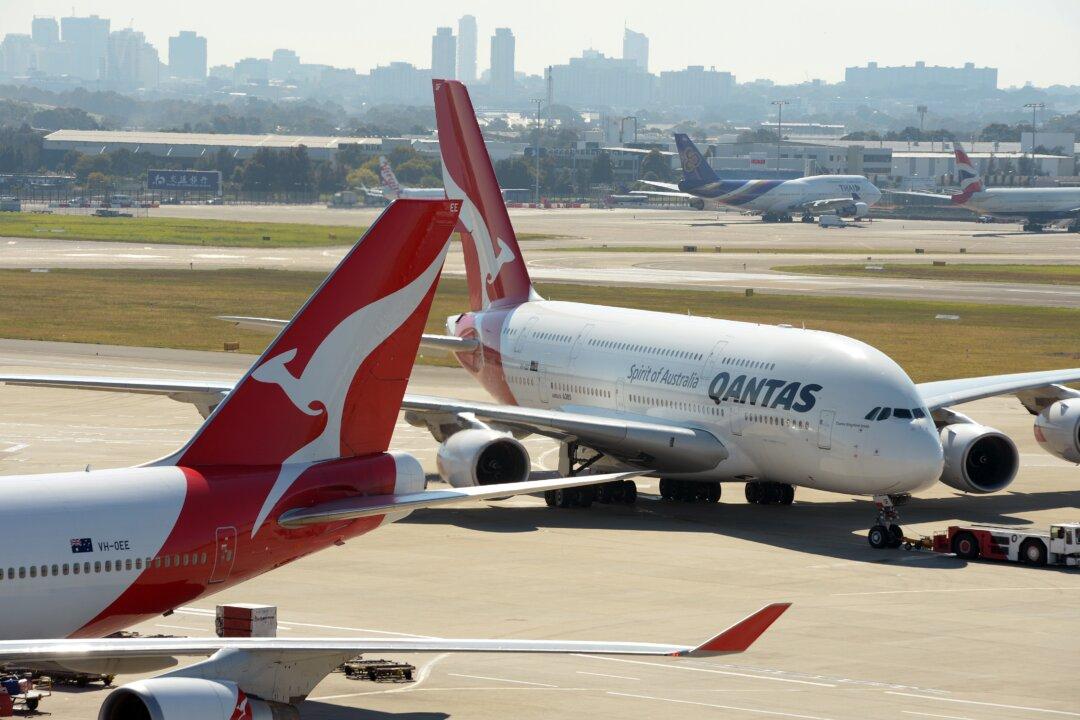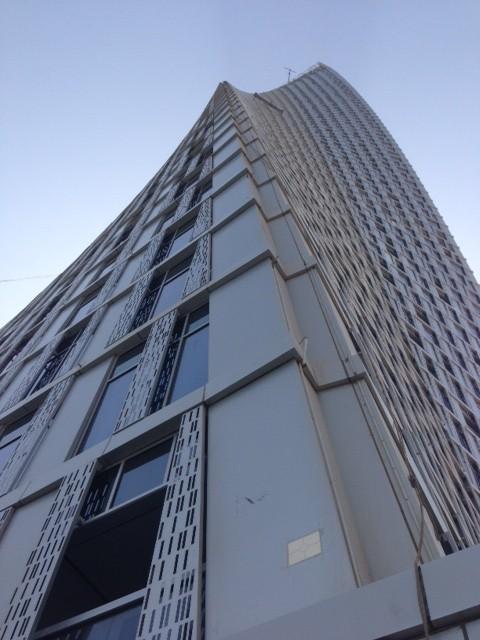DUBAI, United Arab Emirates—The floor of the restroom was covered in water, and the smell of stale cigarettes mingled with other, more unpleasant odors.
My heart dropped as I realized that this grotty toilet cubicle may be the only place I can eat my lunch for the next month.
As a non-Muslim living in a predominantly Muslim country, I have to find my own way around a daylight ban on eating and drinking in public during the month of Ramadan.
At the beginning of the ninth month of the Islamic calendar, with the sighting of the new moon, Muslims around the world begin a month-long abstinence from food and water during daylight hours.
In the United Arab Emirates, as in much of the Arab world, non-believers like your correspondent are also forbidden from eating or drinking in public, so as not to tempt the faithful.
Every day, while dozens of my colleagues grow gradually more haggard, non-Muslims often sneak off to restrooms or specially-designed lunch areas (with the windows blacked out) with our food discreetly wrapped so as not to attract attention.
That all changes after 7:00 p.m., when the fast ends and the party begins. Restaurants across the country throw open their doors to welcome ravenous Muslims for huge buffet meals at knock-down prices.
The iftar, or the meal to break the fast, is an institution here.
In the run up to Ramadan, local newspapers are filled with advice from doctors warning residents not to over-indulge during iftar. Oftentimes, the advice goes unheeded.
Iftar and the later suhour meals are also massive corporate networking events, and media workers in particular are typically bombarded by requests from PRs to attend functions across the country.
The level of waste at such huge buffet functions is also the subject of concern. In the emirate of Abu Dhabi alone, some 500 tons of food is wasted every day during Ramadan, the local weekly Xpress reported.
Even so, the month appears to be a time where all caution is thrown to the wind. Especially during the “iftar rush” where office workers routinely break the speed limit and all basic rules of driving in an effort to make it home for the evening meal.
Sometimes 12 hours without food or water can take its toll in the form of devastating road accidents.
But fasting is hard, and for Muslims it is a religious duty. When I first arrived in the UAE, two years ago, I was curious to see what millions of people here go through every Ramadan.
Keeping within tradition, I rose before daylight to drink large quantities of water and eat a large bowl of porridge.
In the evening I had confirmed my attendance at a grandiose iftar event sponsored by the now beleaguered Dubai World conglomeration.
As the day wore on, my energy levels grew increasingly depleted. By 3:00 p.m., the time when most Muslims finish work for the day and go for a three-hour nap, dehydration had left me with a screaming migraine.
I remember staggering into the iftar event, with most of my attention focused on my watch, willing the time to pass more quickly before the call to prayer and the end of the fast.
The plates of locally-picked dates in front of me were consumed in a frenzy when the iftar finally began, and I remember drinking at least a liter of water in a vain attempt to ease my now thundering headache.
What did I learn? I can only say that it’s an experience I wouldn’t hurry to repeat.
My heart dropped as I realized that this grotty toilet cubicle may be the only place I can eat my lunch for the next month.
As a non-Muslim living in a predominantly Muslim country, I have to find my own way around a daylight ban on eating and drinking in public during the month of Ramadan.
At the beginning of the ninth month of the Islamic calendar, with the sighting of the new moon, Muslims around the world begin a month-long abstinence from food and water during daylight hours.
In the United Arab Emirates, as in much of the Arab world, non-believers like your correspondent are also forbidden from eating or drinking in public, so as not to tempt the faithful.
Every day, while dozens of my colleagues grow gradually more haggard, non-Muslims often sneak off to restrooms or specially-designed lunch areas (with the windows blacked out) with our food discreetly wrapped so as not to attract attention.
That all changes after 7:00 p.m., when the fast ends and the party begins. Restaurants across the country throw open their doors to welcome ravenous Muslims for huge buffet meals at knock-down prices.
The iftar, or the meal to break the fast, is an institution here.
In the run up to Ramadan, local newspapers are filled with advice from doctors warning residents not to over-indulge during iftar. Oftentimes, the advice goes unheeded.
Iftar and the later suhour meals are also massive corporate networking events, and media workers in particular are typically bombarded by requests from PRs to attend functions across the country.
The level of waste at such huge buffet functions is also the subject of concern. In the emirate of Abu Dhabi alone, some 500 tons of food is wasted every day during Ramadan, the local weekly Xpress reported.
Even so, the month appears to be a time where all caution is thrown to the wind. Especially during the “iftar rush” where office workers routinely break the speed limit and all basic rules of driving in an effort to make it home for the evening meal.
Sometimes 12 hours without food or water can take its toll in the form of devastating road accidents.
But fasting is hard, and for Muslims it is a religious duty. When I first arrived in the UAE, two years ago, I was curious to see what millions of people here go through every Ramadan.
Keeping within tradition, I rose before daylight to drink large quantities of water and eat a large bowl of porridge.
In the evening I had confirmed my attendance at a grandiose iftar event sponsored by the now beleaguered Dubai World conglomeration.
As the day wore on, my energy levels grew increasingly depleted. By 3:00 p.m., the time when most Muslims finish work for the day and go for a three-hour nap, dehydration had left me with a screaming migraine.
I remember staggering into the iftar event, with most of my attention focused on my watch, willing the time to pass more quickly before the call to prayer and the end of the fast.
The plates of locally-picked dates in front of me were consumed in a frenzy when the iftar finally began, and I remember drinking at least a liter of water in a vain attempt to ease my now thundering headache.
What did I learn? I can only say that it’s an experience I wouldn’t hurry to repeat.



